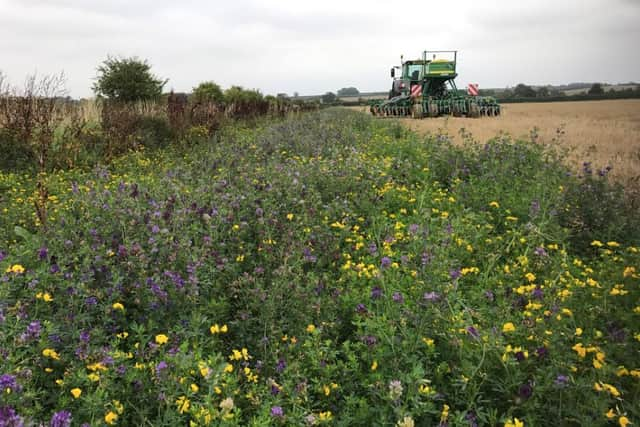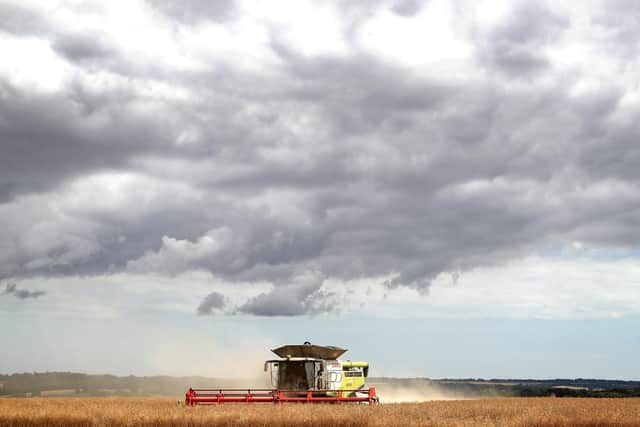Farming industry needs to step up solve harvest crisis - Mark Casci
I have been on record in this column on more than one occasion in praise of the sector’s response to the crisis which has been nothing short of commendable.
Were the sector not home to such agile and innovative leaders such as Roger Burley at Asda and David Potts at Morrisons, the crisis could have been for severe for families. Were it not for the strategic decisions these business leaders took, society would have faced genuine food shortages.
Advertisement
Hide AdAdvertisement
Hide AdHowever, the whole food sector now requires this kind of outstanding leadership if it is to feed the nation in the coming months.


The harvesting of the UK’s crops has been massively reliant on migrant labour for some time now, with an estimated 80,000 foreign workers travelling to the UK each year to pick our fruits and vegetables.
Covid-19 should have stopped this in its tracks.
It is widely anticipated that a two-week quarantine period will be imposed on those arriving into the UK. The airline industry has virtually ground to a standstill.
One would have assumed that there would be little if any appetite from migrant workers to make the journey this year. Both the UK Government and the European Union have done some good work to make this happen.


Advertisement
Hide AdAdvertisement
Hide AdBut despite their best efforts and all of the obstacles they have overcome, it is increasingly clear that migrant workers are arriving to work on our farms.
The problem is that the numbers are nowhere near high enough to meet the scale of the work required, with estimates suggesting that it is two thirds down on levels seen in previous years.
In late March, myself and colleagues reported how a ‘land army’ may be needed to ensure foods are able to be transferred from our fields to our dinner plates and this has become a reality.
Recent data from recruitment facilitators, Indeed, showed searches for agricultural work from British jobseekers had surpassed those made by people abroad for the first time in many years.
Advertisement
Hide AdAdvertisement
Hide AdWith an estimated one in four British workers having been placed on furlough this is hardly surprising.
But the jubilation at this increased level of searching is already looking short-lived with the number of UK workers taking to our fields currently in the low hundreds.
The reasons for this are complex.
Although viewed as low-skilled, farm work can be and often is more complex than a layperson may imagine. Many farmers have, with some degree of prescience, been reluctant to trust novice workers with their livelihoods.
Harvesting crops is also extremely hard work, involving long hours, arduous conditions, early starts and, of course, exposure to the great British weather.
Advertisement
Hide AdAdvertisement
Hide AdAnd, of course, farms are by their very nature often in remote conditions, necessitating travel that can in some cases take hours.
It is highly likely therefore that, despite the surge in interest, when faced with the reality of farm work that people have decided against taking the process any further.
This, of course, still leaves us with a huge problem.
Supermarkets can employ as many delivery drivers as they wish and innovate their stores to allow for social distancing until the cows come home.
But if there is no food supply then this will all be in vain.
Advertisement
Hide AdAdvertisement
Hide AdThe solution to this particular problem has to come from the industry itself.
Farming leaders need to innovate on a level comparable to that seen at the other end of the food chain.
Better working conditions and better pay would seem like obvious starts.
I am sure that for the farming industry, which goes above and beyond in terms of animal welfare to the extent that it is one of the most advanced in the world, can do the same when it comes to training seasonal workers.
Every sector has a role to play in this crisis and farming is no different.